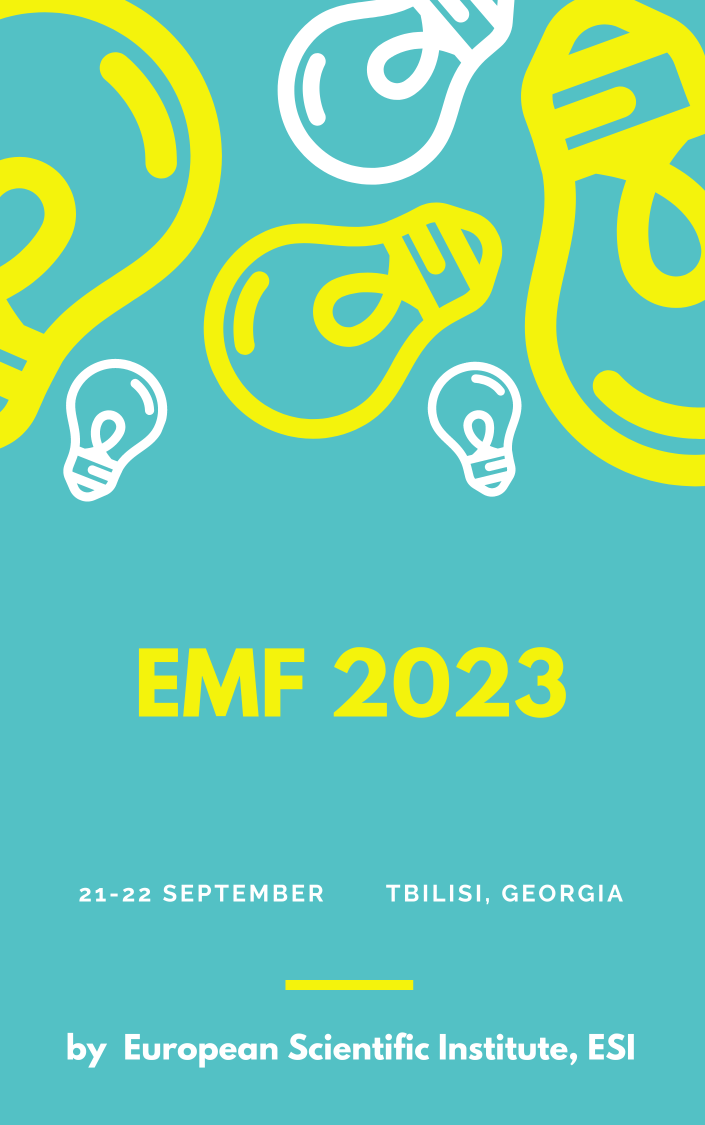Enhancing the Adoption of Financial Innovations to Foster Socioeconomic Welfare
Abstract
The integration of digital technologies has garnered global attention, with a primary focus on their potential to streamline the convergence of digital and non-digital economies. This trend is poised to generate self-employment opportunities and spur socio-economic development, transcending geographic boundaries. In the context of Georgia, where the number of digitally connected individuals is on the rise, it becomes imperative to ascertain the extent to which financial technologies deployed in the financial services industry contribute to the well-being of the population and business representatives. This research aims to assess the benefits of these technologies while acknowledging that their utilization does not impede the future implementation of novel financial innovations by institutions in the sector. While including both, qualitative and quantitative analysis, the study examines the significance of financial technologies in the country's economy in terms of financial resources and the impact on the well-being and growth of the population and companies. Emphasizing user-centricity, it underscores the need to prioritize the fulfillment of users' requirements. Notably, it is not solely traditional financial institutions that shape the landscape, but also technology firms offering innovative products and services, which exert a critical influence on fostering a dynamic business environment. Furthermore, the evaluation of emerging technologies such as cloud computing, the Internet of Things (IoT), artificial intelligence, and blockchain elucidates their potential impact in enhancing the well-being of businesses and the general population. Nevertheless, given the current stage of their development, a comprehensive nationwide implementation of these technologies remains challenging.
Downloads
PlumX Statistics
References
https://api.galtandtaggart.com/sites/default/files/2021-07/report/e-commerce-in-georgia_july-2021_eng.pdf
2. Gamsakhurdia, T., & Kadagidze, L. (2020). Innovative financial instruments to ensure the advancement of SME in Georgia. European Science Review, 3-4(2020), 73–80. DOI:
https://doi.org/10.29013/ESR-20-3.4-73-80
3. Gamsakhurdia, T., & Kadagidze, L. (2022). Fintech and its involvement to make financial system more inclusive and efficient. 5th International European Conference on interdisciplinary Scientific Research, January 28-29, 2022, Valencia, Spain; Proceedings book Pp. 127-132. Retrieved from
https://www.tokyosummit.org/_files/ugd/614b1f_e9a9fe3d30e34a59ad69c05a19ff9be0.pdf
4. Gamsakhurdia, T., & Kadagidze, L. (2022). Fintech evolution and revolution and a new paradigm for the overall financial system. 5th International Conference on Innovative Studies of Contemporary Sciences, January 14-16, 2022, Tokyo, Japan. Proceedings book, IKSAD Global Publishing House, 2022, 30.01.2022; Pp. 261-264. Retrieved from https://www.kongreuzmani.com/site.html?https://www.tokyosummit.org
5. Gul, F., Usman, M., & Majeed, M. T. (2018). Financial inclusion and economic growth: A global perspective. Journal of Business & Economics, 10(2), 133–152.
6. International Monetary Fund. (2022). World Economic Outlook: Countering the Cost-of-Living Crisis. Washington, DC, October.
7. Miller, T., Kim, A. B., & Roberts, J. M. (2021). 2021 Index of Economic Freedom. Washington: The Heritage Foundation. Retrieved from http://www.heritage.org/index/
8. Ndicu, N. D. (2018). Financial innovations risk, financial distress and firms value: A critical review of literature. European Scientific Journal, 14(10). Retrieved from
https://eujournal.org/index.php/esj/article/view/10738
9. Statista's Digital Market Outlook. (2023). Digital market. FinTech. Georgia. Retrieved from
https://www.statista.com/outlook/dmo/fintech/georgia
10. Wang, R., & Tan, J. (2021). Exploring the coupling and forecasting of financial development, technological innovation, and economic growth. Technological Forecasting and Social Change, 163, 1–11. DOI: https://doi.org/10.1016/j.techfore.2021.120468
11. World Bank Group. (2022). World Development Report 2022: Finance for an Equitable Recovery. A World Bank Group Flagship Report. Retrieved from
https://openknowledge.worldbank.org/server/api/core/bitstreams/e1e22749-80c3-50ea-b7e1-8bc332d0c2ff/content
12. World Economic Forum. (2012). Rethinking Financial Innovation: Reducing Negative Outcomes While Retaining The Benefits. A World Economic Forum report in collaboration with Oliver Wyman. Retrieved from
https://www3.weforum.org/docs/WEF_FS_RethinkingFinancialInnovation_Report_2012.pdf
13. Zeidy, I. A. (2022). The role of financial technology (FinTech) in changing the financial industry and increasing efficiency in the economy. Retrieved from https://www.comesa.int/wp-content/uploads/2022/05/The-Role-of-Financial-Technology.pdf
Copyright (c) 2024 Tamar Gamsakhurdia, Lamara Kadagidze

This work is licensed under a Creative Commons Attribution 4.0 International License.








